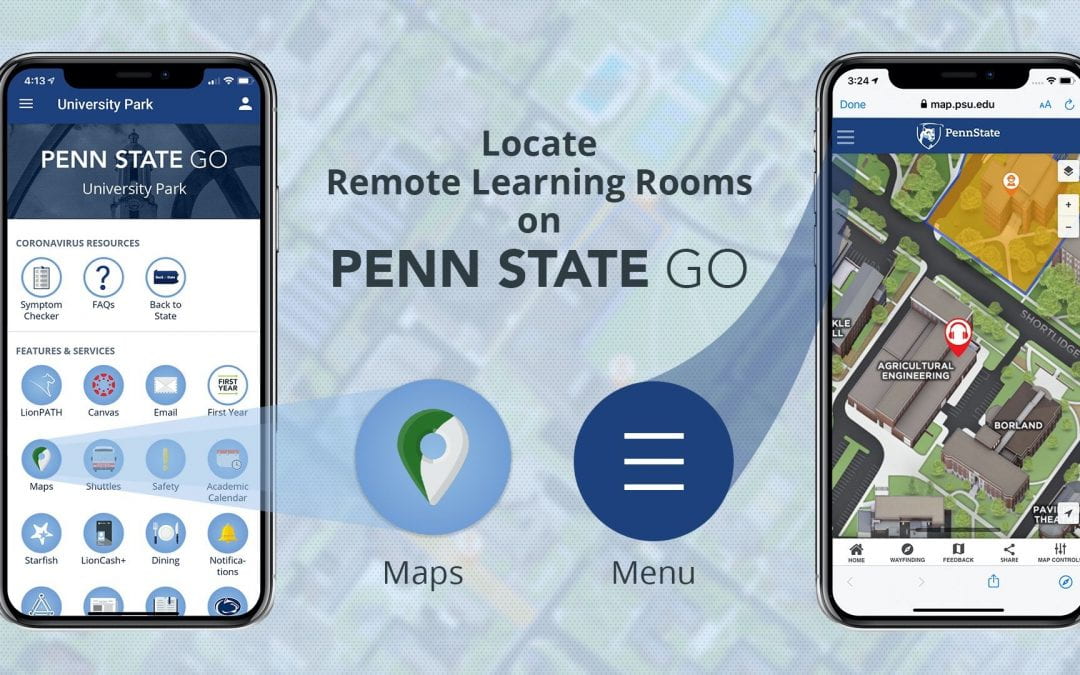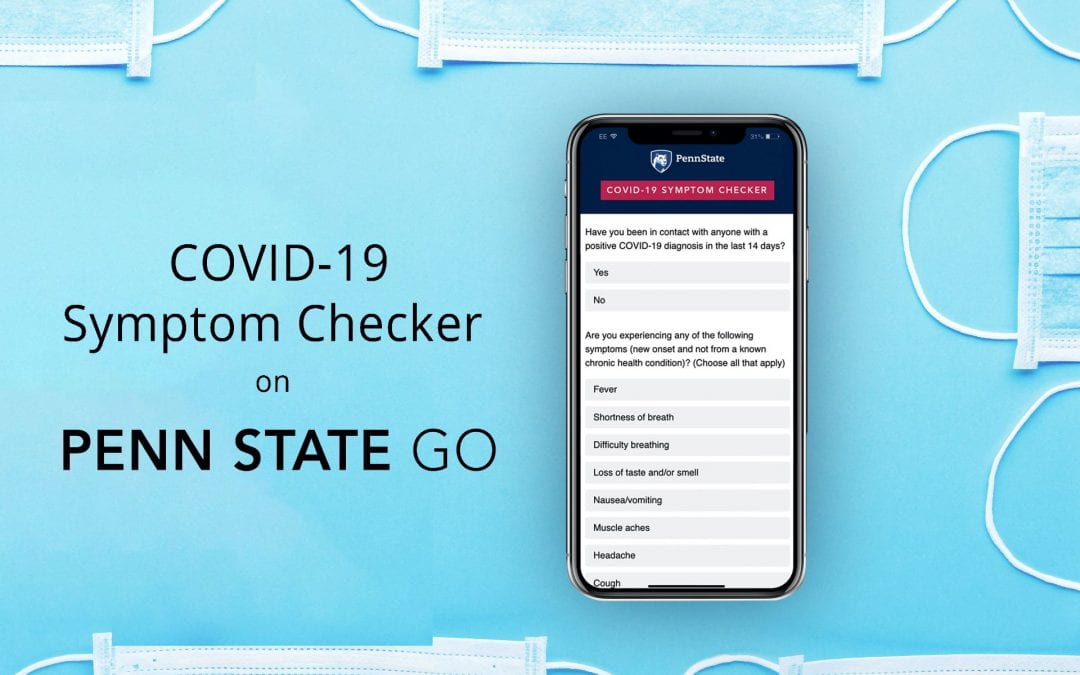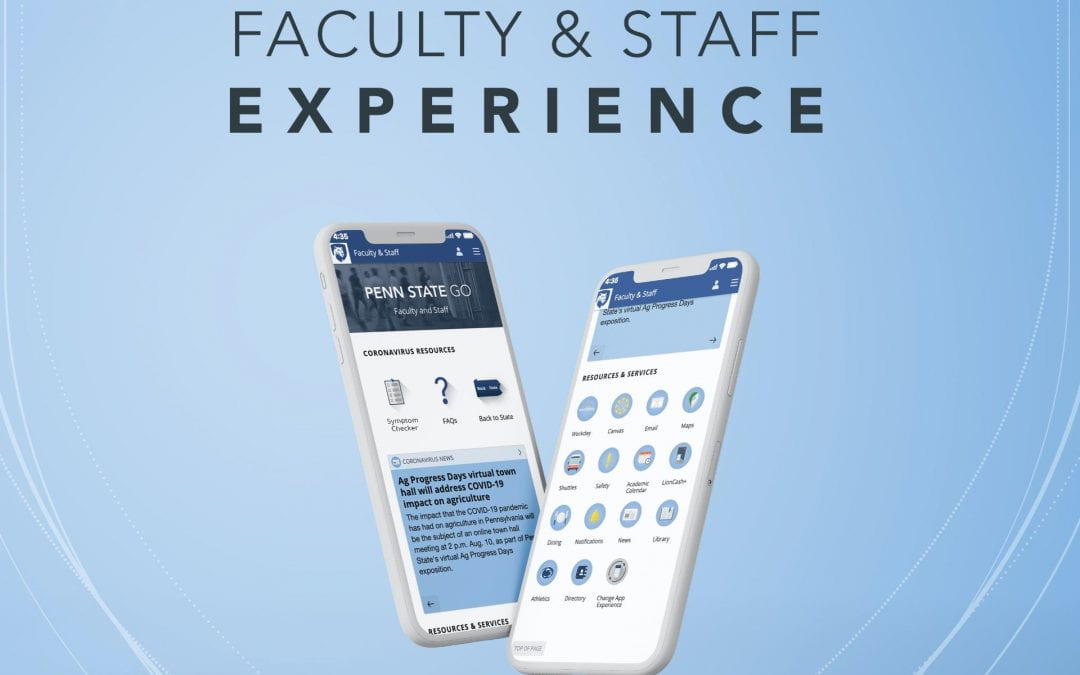
by Vilma Shu | Aug 19, 2020 | News
Starting August 24, Remote Learning Rooms are available for drop-in use by students. Students may use these new rooms to access their synchronous remote classes without having to return to their residence. Students are asked to bring their own headphones and devices (laptops or tablets). A map layer of these designated spaces will be on Penn State’s Interactive Map and the Penn State GO app for University Park.
The seating in these rooms will be configured in accordance with social distancing guidelines, and the room availability will be consistent with the open hours of the building. Students will be expected to maintain social distance and wear masks in these spaces.
To find the locations of these Remote Learning Rooms on Penn State Go:
- Click on the Maps icon in the app.
- Click on the three-lined (hamburger menu), located on the left-side of the screen.
- Remote Learning Rooms is the top selection. Check the box to the right of the Remote Learning Spaces selection to allow this overlay on your maps for future viewing.

by Vilma Shu | Aug 10, 2020 | News
Starting August 10, 2020, all Penn State students are asked to complete a daily symptom checker to self-screen for potential COVID-19 symptoms before returning to campus. Students enrolled for in-person courses or scheduled to be present at on-campus facilities will need to sign in with their Penn State ID to complete the daily student COVID-19 symptom checker through the Penn State Go app.
It is strongly encouraged that all students complete the symptom checker every morning before leaving their homes, riding public transportation, and arriving on campus premises.
“As a Penn State community, all of us need to do our part to abide by the clear directives from our public health officials to avoid unnecessary interactions with others, and to follow the new procedures and guidelines for returning to campus this fall,” said Damon Sims, vice president for Student Affairs. “The only way we will be able to mitigate and contain the spread of COVID-19 is through individual commitment to our collaborative efforts.”
Penn State is committed to continuing the University’s research and educational mission while providing the necessary measures to minimize community transmission of COVID-19 both on and off-campus.
“As part of the University’s multi-layered approach to confronting the coronavirus pandemic, the Penn State Go mobile app will help us monitor COVID-19’s prevalence on our campuses through the symptom checker,” said Nick Jones, executive vice president and provost. “Along with other means of outreach, Penn State Go will enable timely communication with the University community about pandemic-related news and Penn State’s responses and actions as situations warrant, incorporating the most current information and recommendations.”
Penn State Go, the official mobile app for Penn State, is available for download from the Google Play Store and Apple App Store.
For more information, visit the Penn State Go website and learn about its features.
For the latest updates about Penn State’s response to the global coronavirus outbreak, visit virusinfo.psu.edu.

by Vilma Shu | Aug 6, 2020 | News
Starting Aug. 6, a faculty and staff COVID-19 symptom checker will go live as part of a new employee-centered experience in the Penn State Go app. In addition to the symptom checker, the new Faculty and Staff Experience will feature access to Penn State email, Canvas Teacher, a link to Workday, additional coronavirus resources, and much more.
Faculty and staff can select the Faculty and Staff Experience when prompted in the app to select an experience or by using the “Change App Experience” icon in Penn State Go.
All faculty and staff are strongly encouraged to complete the COVID-19 symptom checker on the Penn State Go mobile app to self-screen for potential COVID-19 symptoms before returning to campus. It is recommended that faculty and staff complete the symptom checker daily prior to leaving their homes and arriving on campus premises.
Details on the student COVID-19 symptom checker, which is expected to go live in the Penn State Go app on Aug. 10, will be made available in the coming days.
“As we phase more faculty and staff to return to campus this fall, our focus is on health and safety while providing support for multiple methods of teaching, additional opportunities for communication, and quick access to University resources,” said Lorraine Goffe, vice president for Human Resources and chief human resources officer. “It is critical that we remain vigilant in practicing COVID-19 mitigation efforts, including daily self-screening for symptoms, staying home if you have symptoms, using face coverings, social distancing, and practicing regular hand-washing.”
Initially focused on the student mobile experience, development of the app rapidly accelerated, driven in part by the pandemic, and the need to extend University resources to reach the broader Penn State community.
“Penn State Go provides mobile-friendly access to processes across all Penn State campuses, including support of our pandemic mitigation and containment plans by integrating the daily symptom checkers,” said Nick Jones, executive vice president and provost. “Given the rapidly developing circumstances related to COVID-19, testing and tracing plans will evolve to incorporate the most current information and recommendations. Penn State Go allows us to communicate quickly when any new actions are warranted as new information emerges.”
Since the app’s launch in January 2020, Penn State Go has had more than 56,000 downloads from the Google Play Store and Apple App Store.
For the latest updates about Penn State’s response to the global coronavirus outbreak, visit virusinfo.psu.edu.




Recent Comments